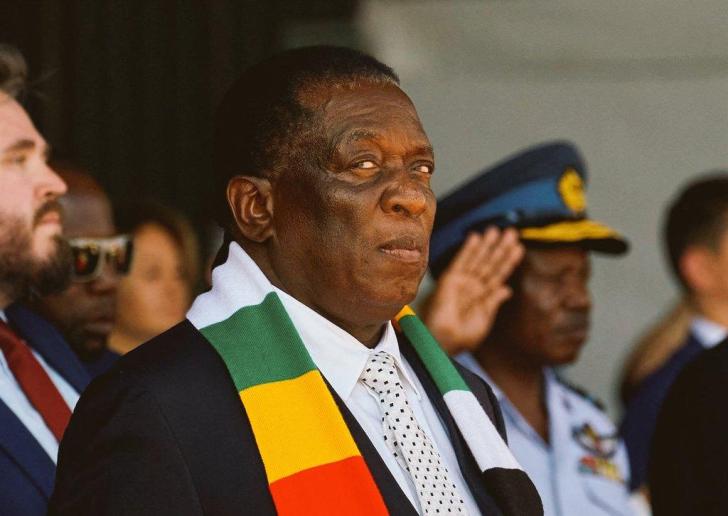News / National
Mnangagwa says he will not be running for a third term in office
08 Apr 2024 at 17:54hrs |
0 Views

President Emmerson Mnangagwa has stated unequivocally that he will not seek a third term in office, adhering to the provisions of the Zimbabwean Constitution.
Currently serving his second and final term, Mnangagwa was offered another term by the ruling Zanu-PF, with the slogan "2030 VaMnangagwa vanenge vachipo" gaining popularity at party events.
According to Section 95 of the Zimbabwe Constitution Amendment (No20) Act, 2013, a President's term begins upon inauguration and typically lasts for five years until the subsequent election, where they may be re-elected or a new president elected.
Under Section 91, a President cannot exceed two terms in office if each term lasts three years or more. In Zimbabwe, a president's tenure is limited to two five-year terms.
In an interview with the local magazine "Brick by Brick," Mnangagwa affirmed his decision not to contest in the next election, stating, "There is not a shred of evidence where Zanu-PF or I, as President, have ever advocated for the violation of our Constitution." He further stated, "But we allow people to dream properly or widely. They will wake up and find that things are functioning, and the Constitution remains unchanged."
Addressing the speculations about his potential third term, Mnangagwa characterized them as imaginative, highlighting the democratic nature within Zimbabwe. He emphasized, "This demonstrates democracy in the country; in Zanu-PF, we are very democratic and we adhere to the constitution."
Mnangagwa assumed power following the ousting of the late longtime ruler, Robert Mugabe, in a military coup. He won the previous two elections, although the opposition claims they were rigged and unfair.
After the general elections last year, the self-imposed Citizens Coalition for Change (CCC) secretary general Sengezo Tshabangu, suspected of collaborating with Zanu-PF, recalled the majority of opposition legislators. Subsequently, in the controversial by-elections that ensued, Zanu-PF secured a two-thirds majority in Parliament, raising concerns that the ultimate objective was to amend the Constitution and extend Mnangagwa's tenure in office.
Currently serving his second and final term, Mnangagwa was offered another term by the ruling Zanu-PF, with the slogan "2030 VaMnangagwa vanenge vachipo" gaining popularity at party events.
According to Section 95 of the Zimbabwe Constitution Amendment (No20) Act, 2013, a President's term begins upon inauguration and typically lasts for five years until the subsequent election, where they may be re-elected or a new president elected.
Under Section 91, a President cannot exceed two terms in office if each term lasts three years or more. In Zimbabwe, a president's tenure is limited to two five-year terms.
Addressing the speculations about his potential third term, Mnangagwa characterized them as imaginative, highlighting the democratic nature within Zimbabwe. He emphasized, "This demonstrates democracy in the country; in Zanu-PF, we are very democratic and we adhere to the constitution."
Mnangagwa assumed power following the ousting of the late longtime ruler, Robert Mugabe, in a military coup. He won the previous two elections, although the opposition claims they were rigged and unfair.
After the general elections last year, the self-imposed Citizens Coalition for Change (CCC) secretary general Sengezo Tshabangu, suspected of collaborating with Zanu-PF, recalled the majority of opposition legislators. Subsequently, in the controversial by-elections that ensued, Zanu-PF secured a two-thirds majority in Parliament, raising concerns that the ultimate objective was to amend the Constitution and extend Mnangagwa's tenure in office.
Source - newzimbabwe
Join the discussion
Loading comments…
































